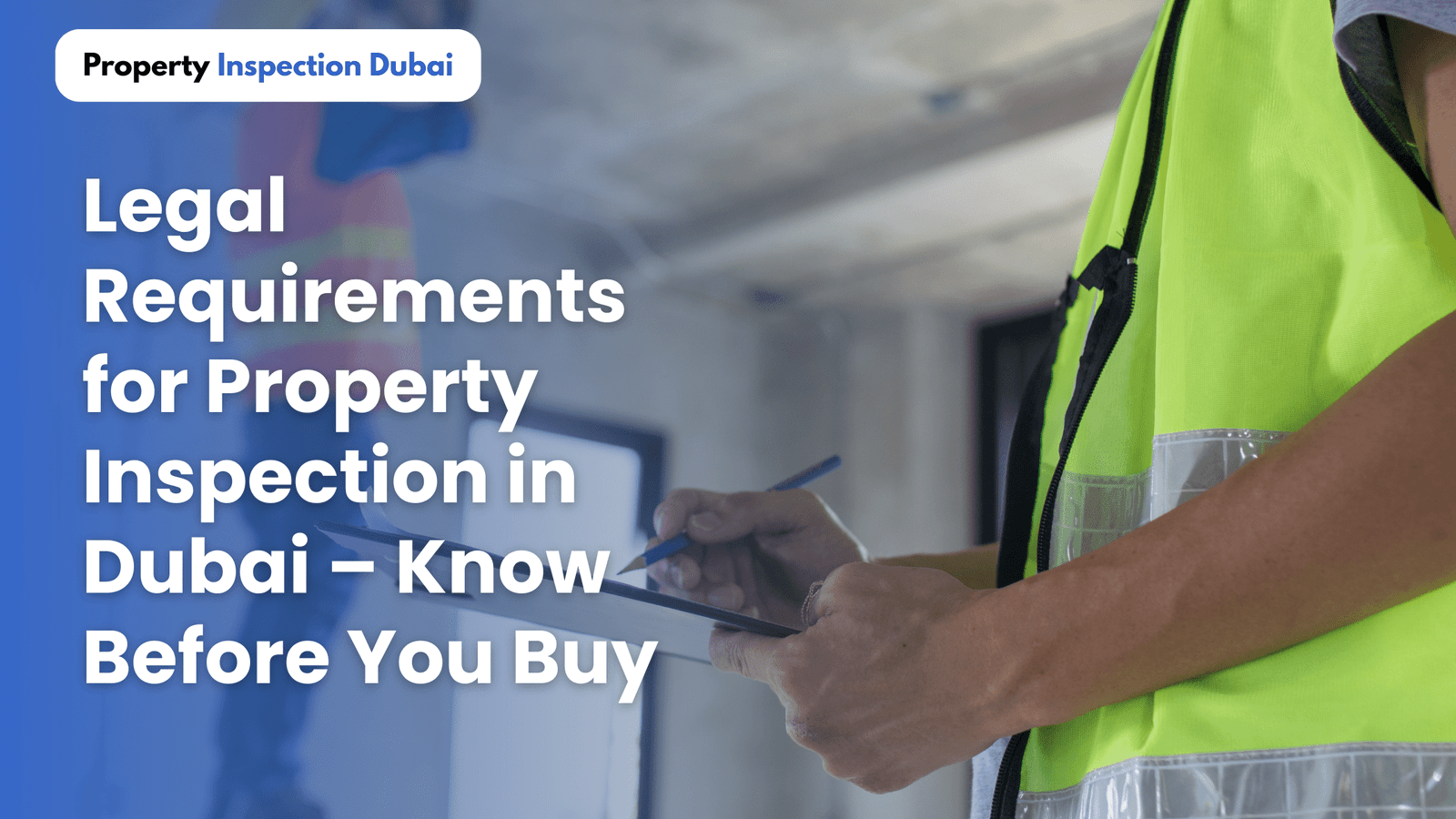Introduction
When buying property in Dubai, due diligence goes beyond financial documents. One essential step that often gets overlooked is property inspection. Although inspections are not yet legally mandated for every transaction, many legal frameworks recommend or indirectly require them. By understanding these legal requirements for property inspection in Dubai, you can protect your investment and avoid costly mistakes.
Are Property Inspections Legally Required in Dubai?
Currently, Dubai does not mandate property inspections for individual buyers by law. However, regulatory bodies like Dubai Municipality, RERA, and DEWA enforce compliance through inspections during property development and handover. Developers must ensure the property meets all structural and safety codes before it receives final approval.
Because of this, many banks and real estate firms require professional inspections before releasing funds or completing property transfers.
When Are Property Inspections Legally Enforced?
1. Developer Compliance Before Handover
Before issuing a completion certificate, developers must pass inspections covering:
-
Structural Integrity
-
Mechanical, Electrical & Plumbing Systems (MEP)
-
Fire Safety & Emergency Access
-
Utility Connection Approval (DEWA)
Failing these checks can delay project delivery and lead to legal consequences for developers.
2. Civil Defence and Fire Safety Certification
For multi-unit or commercial buildings, inspections from Dubai Civil Defence are mandatory. These checks ensure the property has adequate fire safety measures including alarms, extinguishers, and emergency exits.
What Inspections Are Recommended for Buyers?
Although the law does not require buyers to conduct inspections, you should always get one done. Here’s why:
Snagging Inspection
A certified inspector will identify visible and hidden issues—such as cracks, broken fittings, poor finishing, or damaged doors—before you accept the keys.
Structural Assessment
This step checks for serious concerns such as structural movement, beam cracks, or construction defects that could lead to future damage.
MEP & HVAC Testing
Plumbing leaks, faulty switches, or a non-functional AC system can cost thousands later. A thorough MEP check ensures these systems are working perfectly before handover.
Tenancy Law and RERA Regulations
Dubai Law No. (26) of 2007 outlines responsibilities for tenants and landlords regarding property maintenance. If you are renting out a unit, performing a pre-lease inspection helps you document the condition of the unit and prevent future disputes.
RERA also expects landlords to provide livable and well-maintained housing—failure to comply may result in tenant claims or fines.

Who Can Legally Perform a Property Inspection in Dubai?
Only certified professionals should carry out formal inspections. Ideally, your inspector should meet the following criteria:
-
InterNACHI Certification
-
Use of advanced tools (thermal imaging, laser levels, moisture meters)
-
Local experience in Dubai’s construction standards
-
Use of digital reporting tools like Spectora
At Property Inspection Dubai, we meet all of the above. We deliver detailed, same-day inspection reports with full transparency and photographic evidence.
Conclusion
While Dubai does not legally require individual property buyers to conduct inspections, the regulations placed on developers and utility connections make inspections indirectly essential. More importantly, skipping an inspection can lead to regret, especially when undetected defects turn into expensive repairs.
🏠 Don’t take chances. Call +971 56 378 7002 and book your certified inspection with Property Inspection Dubai today.
📧 Or visit: www.propertyinspectiondubai.ae
